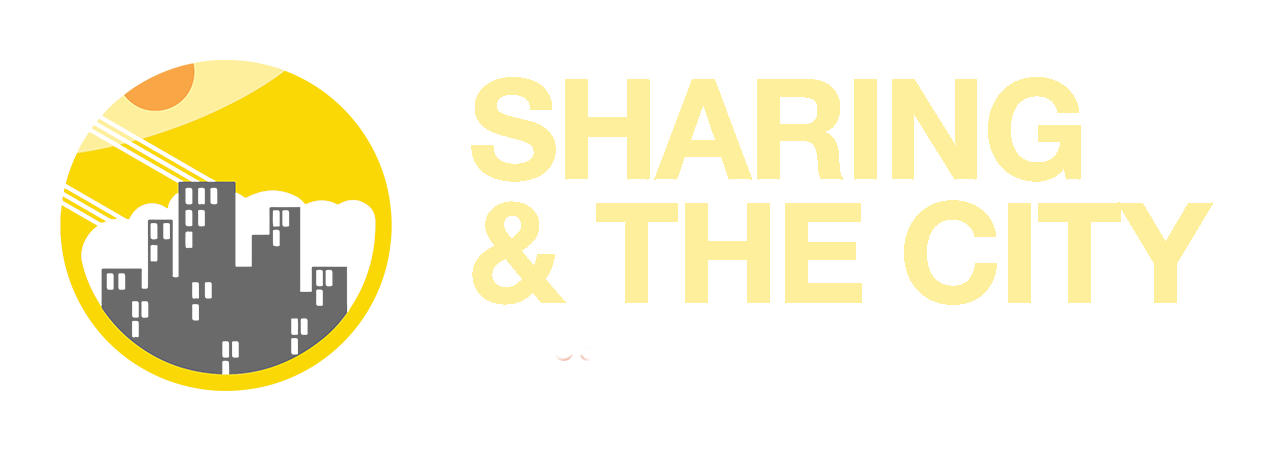Sharing City Forum at Seoul Innovation Week 2020
Sharing and the City PI Yuliya Voytenko Palgan and Urban Sharing PI Oksana Mont presented their work “ON THE FUTURE OF SHARING CITIES: CRISES, CITIES AND COMMUNITIES” at the Sharing City Forum held at 2020 Seoul Innovation Week on 27 November 2020. They also participated in the panel discussion “The Era of Coronavirus: Sharing City Strategy that Strengthens the City Resilience” on the direction of cooperation among sharing cities for better resilience in the pandemic and Seoul’s suggestion. The panel was moderated by Neal Gorenflo, the Head of Shareable.
2020 is a dramatic year, when the world paused in response to the global pandemic of Covid-19. Our economies have been drastically impacted and may potentially change forever. As we currently witness our cities and communities deal with the second wave of COVID-19, together with many other volunteers, sharing economy organisations are helping cities to provide essential public services. The sharing economy emerged about a decade ago in response to the financial crisis of 2008. As a result of the crisis, many people lost their jobs and faced economic hardships and were looking for new ways to generate income and to gain access to resources in more economical and social ways. In 2020 the world is facing another crisis, which is expected to have similar, if not far worse, impacts on the global economy. However, contrary to the economic crisis of 2008, the COVID-19 pandemic forces people to remain apart physically instead of bringing them together. Many countries have enforced strict social distancing measures meant to prevent the spread of the virus. Yet, the backbone of the sharing economy is interacting and exchanging resources among peers.
In their presentation (watch here at 40:20) Oksana and Yuliya asked two questions: 1. How do the responses by sharing economy organisations to the pandemic support cities? 2. What can cities do to utilise the potential of the sharing economy? They specifically discussed the responses of mobility, space and goods sharing organisations.
In the shared mobility segment, ride-sharing organisations extend their services to drive health workers to hospitals for free or at a discount rate, transport people to COVID-19 testing facilities at a discounted rate and offer free deliveries of goods to healthcare facilities and food banks. Some mobility sharing organisations partner with food delivery organisations to provide food to the most vulnerable citizens in community. Seeing the rise in domestic violence, ride sharing organisations offer free trips to shelters to domestic violence victims. Mobility sharing organisations extend their services to deliver necessities to people other than food. There have been many cases reported when mobility sharing organisations add match-making services between businesses with high delivery demand, and people or businesses looking for delivery jobs resulting in reallocation of work force where it is mostly needed. Many car and bike-based delivery services help restaurants to shift from dine-in guests to people ordering food online. Some organisations make strategic investments in innovative solutions to overcome the consequences of the pandemic by e.g. announcing a global virtual hackaton for innovative ideas.
Space sharing organisations also offer wealth of examples ranging from organisations offering discounts on accommodation to front line health workers to shifting short term to long-term home rental or turning short term space rental into conferencing facilities for those working from home. There is also a growing market of remote locations being offered for sharing for distance working. Many organisations added services such as online experiences to encourage people to learn new skills, engage in various activities as private individuals or as workers.
In the shared goods segment, organisations are often smaller, but they also undertake different measures. For example, they quarantine the goods between uses to reduce the spread of virus. They move online when feasible or keep open for social networking purposes when possible, and they also deliver goods to those in need.
To summarise, born out of a past crisis, the sharing economy helps us overcome the current crisis by:
• Activating idling resources
• Helping avoid dependence on global supply chains
• Activating people and communities
• Localising reuse and repair cycles to prolong life of assets and goods to be shared by many people
• Re-purposing urban spaces for shared use
• Bringing people together on distance or virtually
Cities have critical roles to play leveraging actions of sharing organisations that create added social, environmental and economic value to people. Cities have the power to amplify the value created and safeguard it in a long run. One way to help cities structure their actions for leveraging and amplifying the value created by sharing organisations in response to the COVID-19 pandemics and in the post-COVID world is the municipal governance framework for engaging with the sharing economy. It distinguishes 5 mechanisms: regulating, providing, enabling, collaborating and self-governing and 11 roles.

